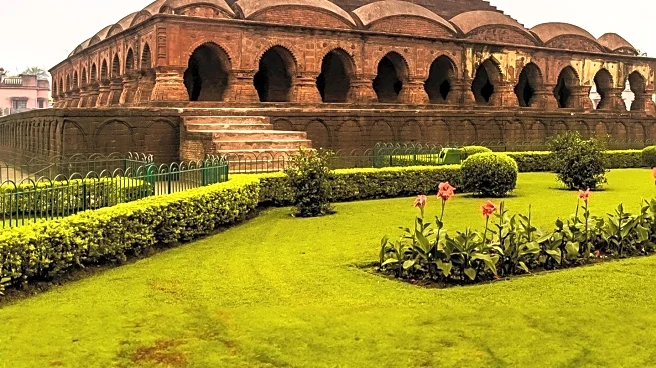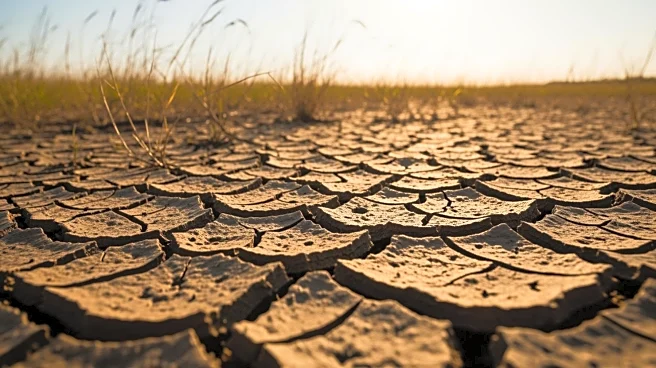What's Happening?
The Purépecha community in Tzurumútaro, Michoacán, Mexico, is actively working to preserve its cultural heritage through the cultivation of medicinal gardens. These gardens serve as a repository for traditional
knowledge of medicinal plants, which are used to treat various ailments such as respiratory and stomach issues. The initiative, led by María Guadalupe García Alonso, aims to maintain the community's identity and cultural practices amidst challenges posed by foreign capital and monoculture farming. The community's traditional medicine system is holistic, focusing on the individual's biological, psychological, and social well-being, and is passed down through generations.
Why It's Important?
The preservation of medicinal gardens is crucial for maintaining the Purépecha community's cultural identity and food security. The influx of foreign companies promoting monoculture farming threatens traditional agricultural practices and the cultivation of essential medicinal plants. This shift not only impacts the community's economy but also its social fabric, leading to increased substance dependencies among the youth. By safeguarding traditional medicine and agricultural practices, the community can resist cultural erosion and maintain its autonomy over natural resources, which is vital for its long-term sustainability and resilience.
What's Next?
The community faces ongoing challenges from economic pressures and environmental degradation due to intensive farming practices. Efforts to preserve traditional medicine and agriculture must continue to counteract these threats. The community may seek further support from organizations like Slow Food to enhance their initiatives and promote sustainable practices. Additionally, raising awareness about the importance of cultural preservation and biodiversity could attract more allies to support their cause.
Beyond the Headlines
The Purépecha community's struggle highlights broader issues faced by indigenous groups worldwide, including territorial encroachment and cultural erosion. Their efforts to preserve traditional medicine and agriculture serve as a model for other communities facing similar challenges. The initiative underscores the importance of integrating cultural practices into modern sustainability efforts, emphasizing the role of indigenous knowledge in biodiversity conservation.










